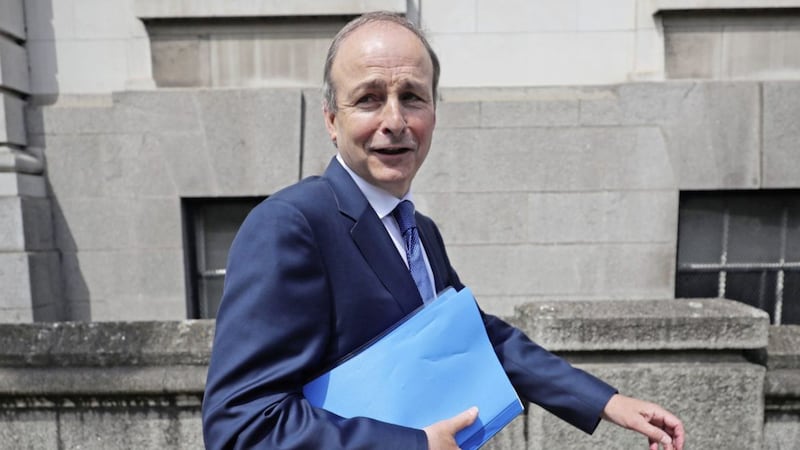Éamon Ó Cuív says it’s the end of the world – well, at least the beginning of the end for Fianna Fáil.
Never leadership material, Dev’s spitting image grandson is one facet of the party Dev founded. The granda made peace with the state he made war upon, and went on into very old age to become its revered figurehead. For the grandson, a grand finale was never in sight.
A Green contingent is making a good fist at pointing out that the proposed programme for government fumbles the issues highlighted in last February’s election. Clare Bailey was characteristically blunt on Sunday: ‘What I can see is the most vulnerable will be hit the hardest.’ She did add that she would stand by her party’s final decision next Friday on going into government.
Determination to keep Sinn Féin out of government has been the most consistent strand in four and a half months of dickering. After an election that delivered no certainty except a will to be done with Fianna Fáil propping up Fine Gael, and an SF vote that surprised SF as much as it did everyone else. Nay-saying now is probably out of sync with a general mood. An FF/Fine Gael/Green government would mean the end at last of civil war politics.
If this mooted coalition develops stability, a full century on from the bloody, vicious conflict that set sworn allies on each other, the big picture carries the state up and forward. Details nark away at coalitions. But first there will be, or may be, a will to will it on.
The degree of pain inside FF and FG has been hard to watch from the northern side of the border without a tiny curl of the lip. And yet; still no agreed death-toll from the Civil War, and scant demand for it, in a small country where the combatants came from the same religious gene pool, the same community. The willed amnesia over their civil war that finally broke down in Spain is still largely intact in the Republic.
But the fighting ended on May 24, 1923, having begun on June 28 of the previous year. Conflict here that took almost 4,000 lives and grievously injured and traumatised many more has only been quiet for two decades, and that not totally. Yet the instability, ineffectiveness, and general un-impressiveness of northern power-sharing has reaped mockery. Northerners are said to be wedded to strife, bigots, hopelessly negative.
Southerners who cannot contemplate Sinn Féin in government expect unionists whose community saw republicans as genocidal to share Stormont with a good grace.
‘Civil war politics’ meant remarkably durable voting patterns, largely inherited in families. If your parents voted Fine Gael, much more often than not so did you. Bitterness was not to be burnished in the young by tales of civil war atrocities, but the two big parties fought each other electorally with unforgiving insistence on their divide. There was a state to build, however. Some memories were silenced.
How different the home life of our own dear state. But then one northern section had the state foisted upon them while the other believed their own survival depended on it. Maintaining rather than healing division puts a premium on the tribe.
The real offence in a northern ‘mixed’ marriage, though some dress it up as loss of faith, is that it costs one or other tribe the potential votes of potential children. ‘Was it for this...?’
Unless this week undoes the plan - and perhaps hands a decision on the next step to President Higgins - Micheál Martin should be taoiseach from next Monday, if only until early 2022. Sinn Féin as fully-fledged Dáil opposition means more awkwardness for Sinn Féin in Stormont, struggling to hit leftish notes while playing responsible power-sharers. And what becomes of the Greens? It will be worth watching, though maybe painful if you’re Éamon Ó Cuív.








